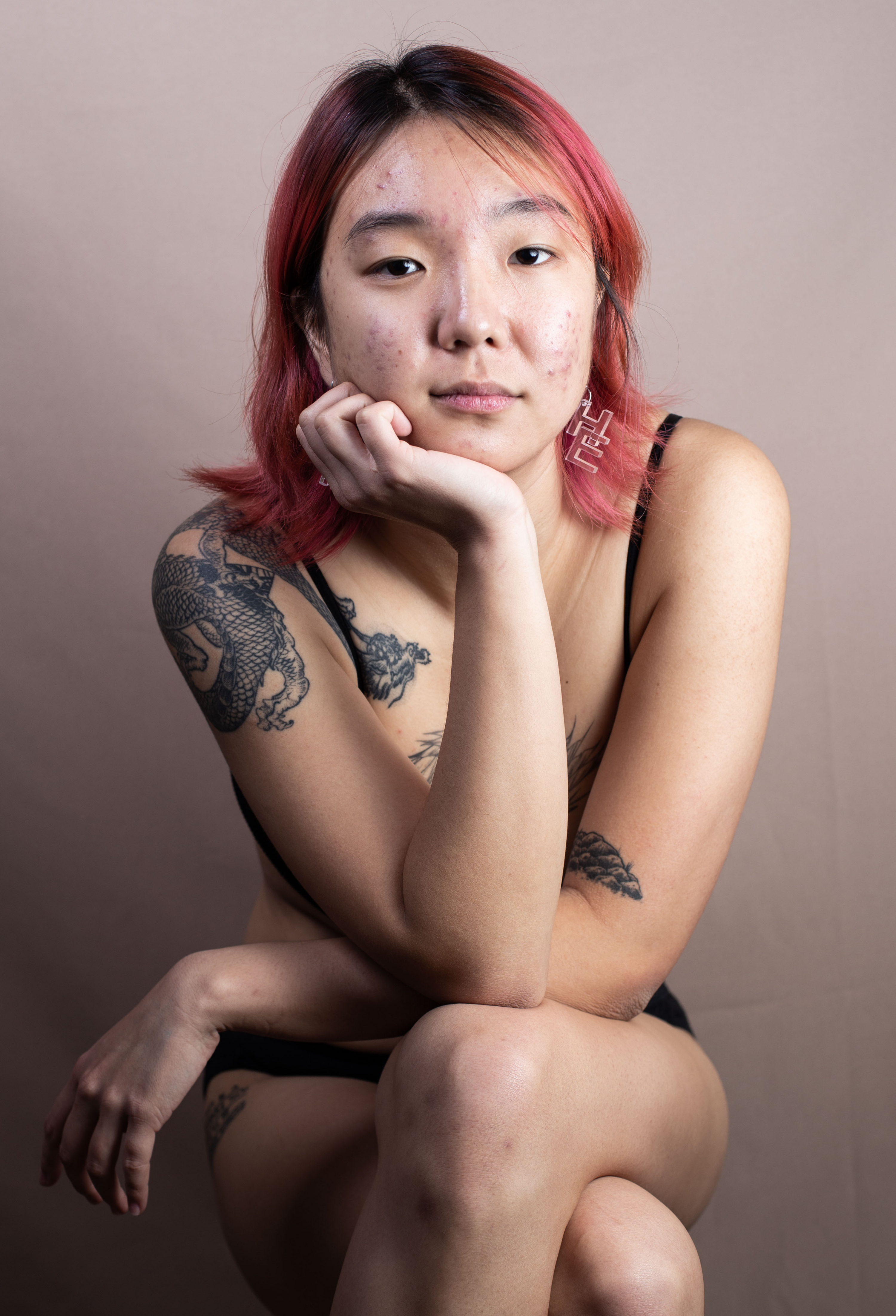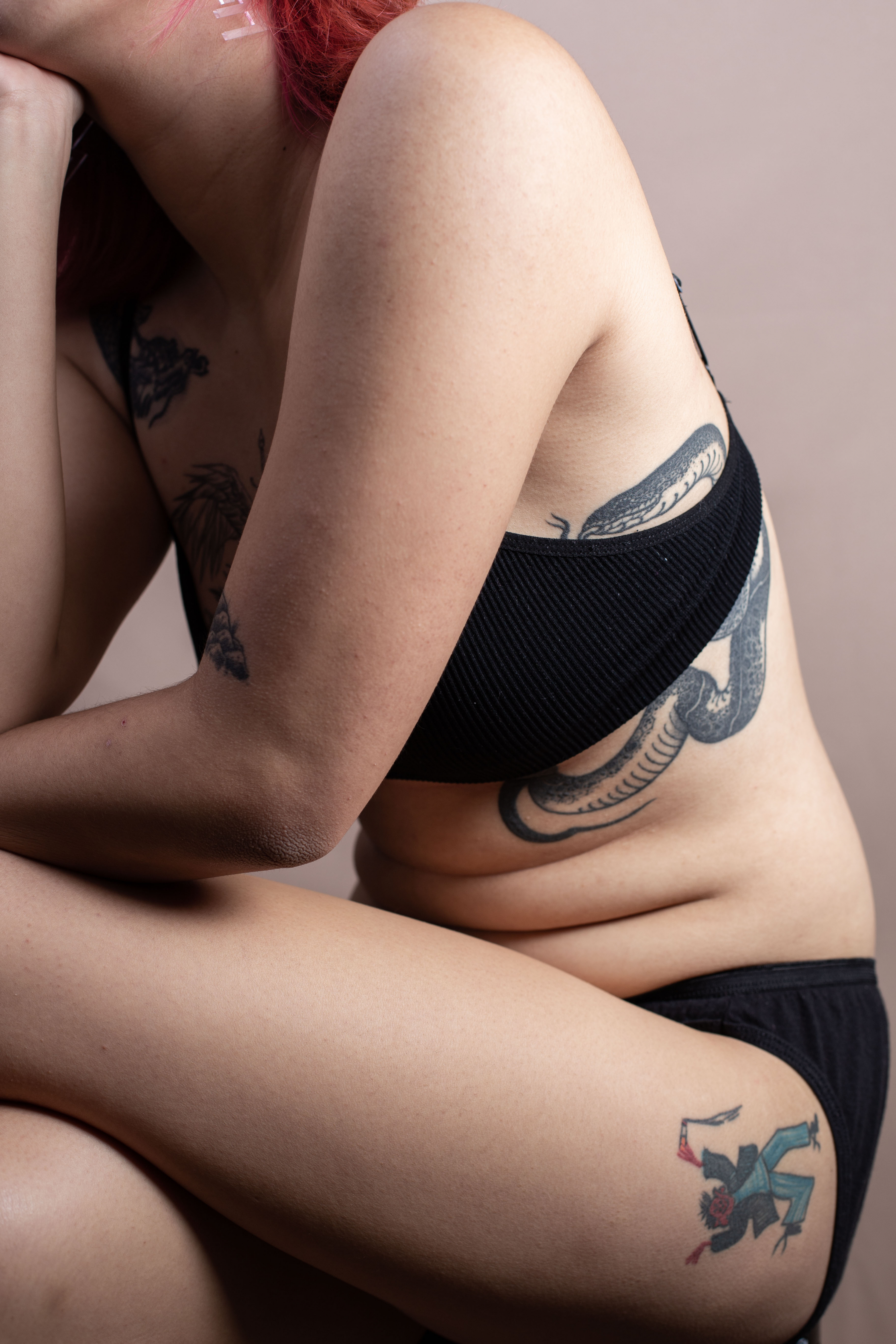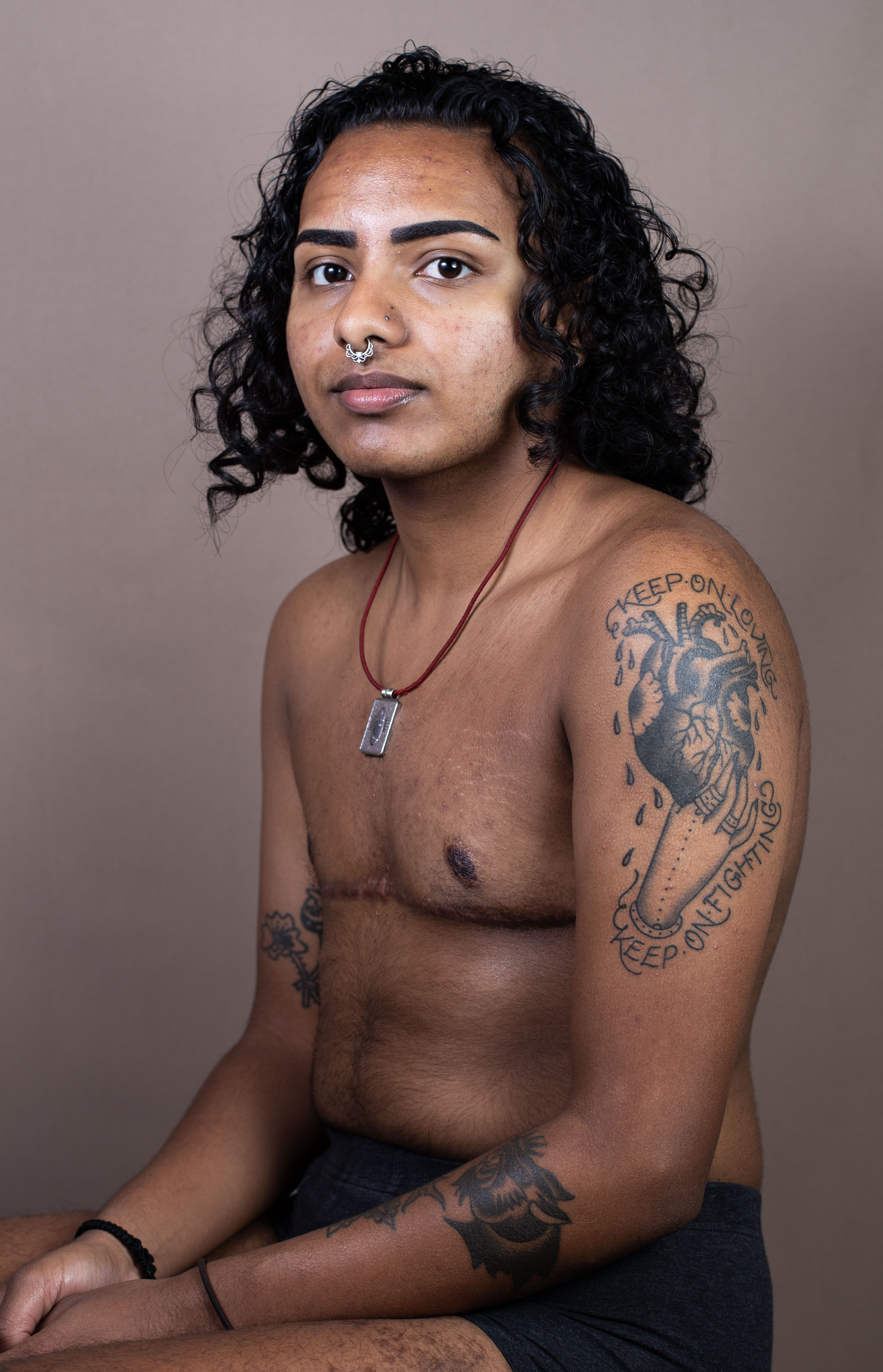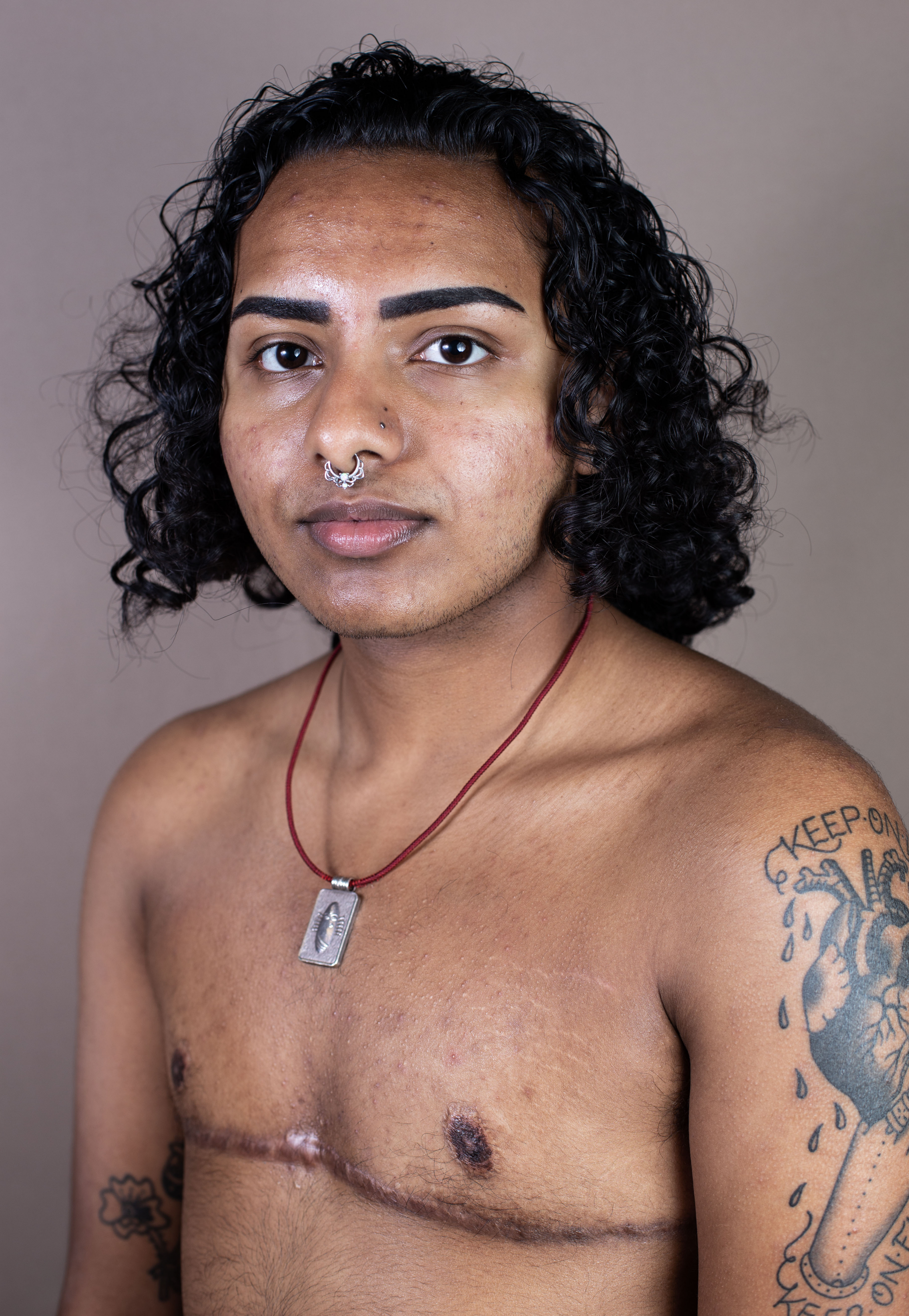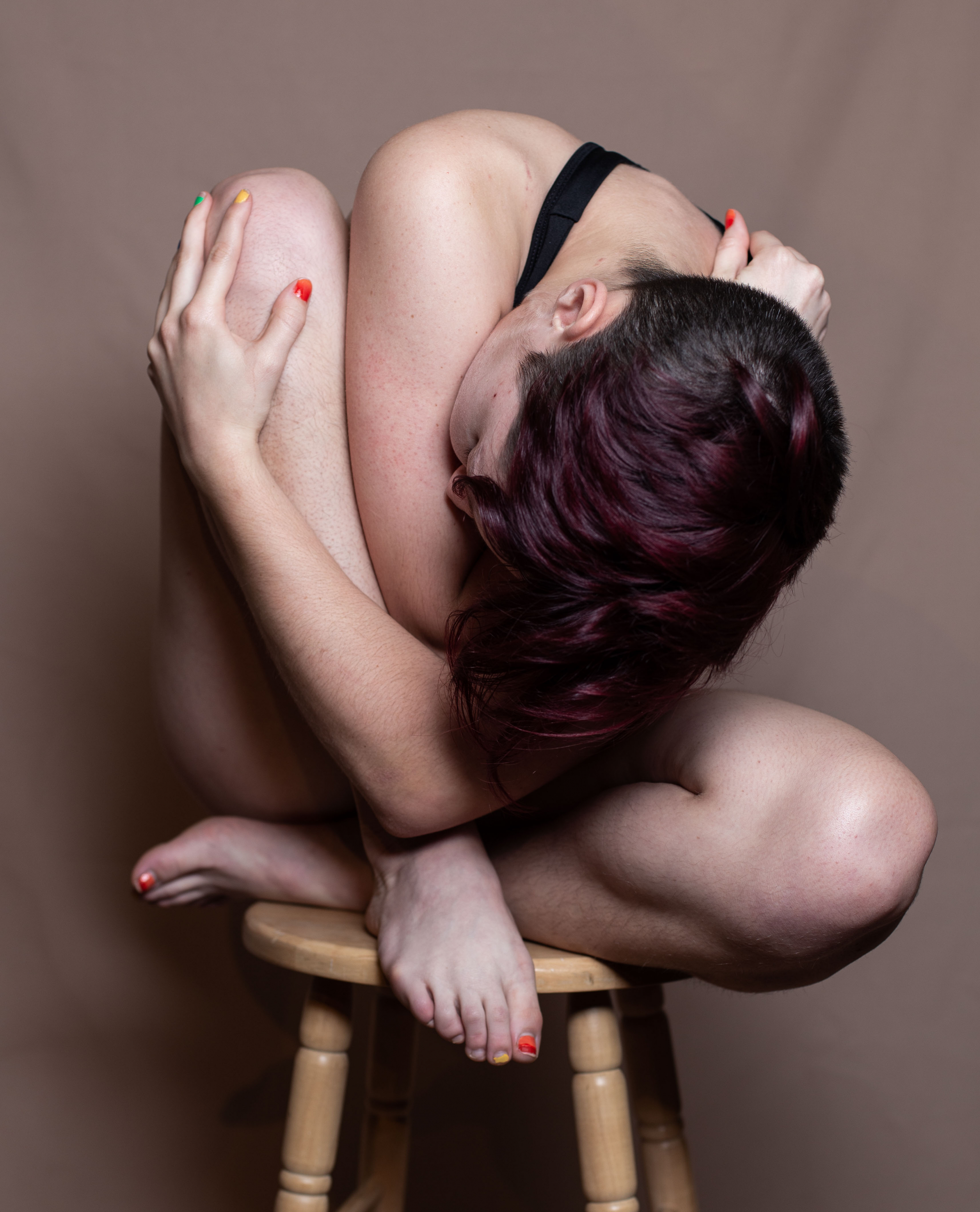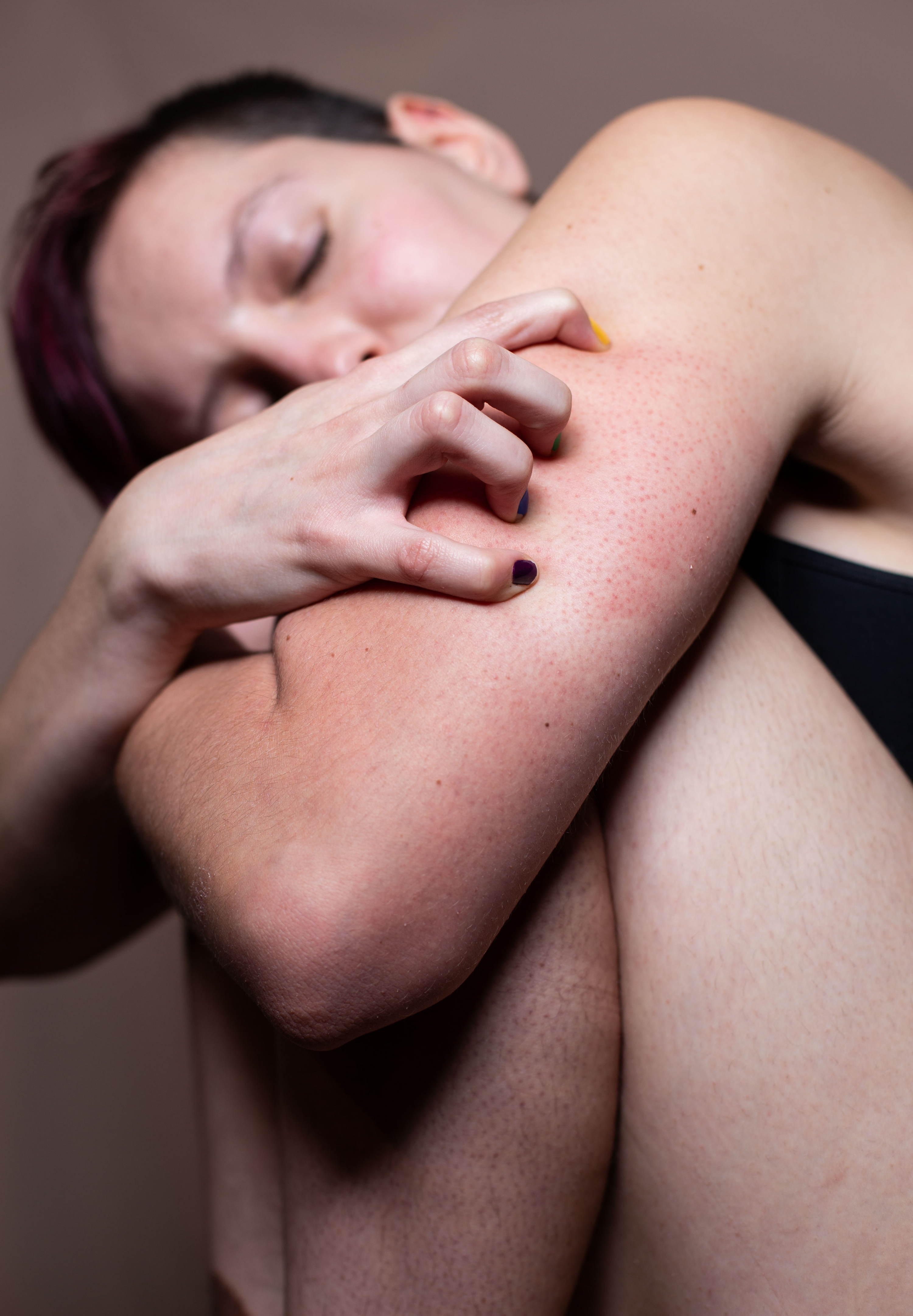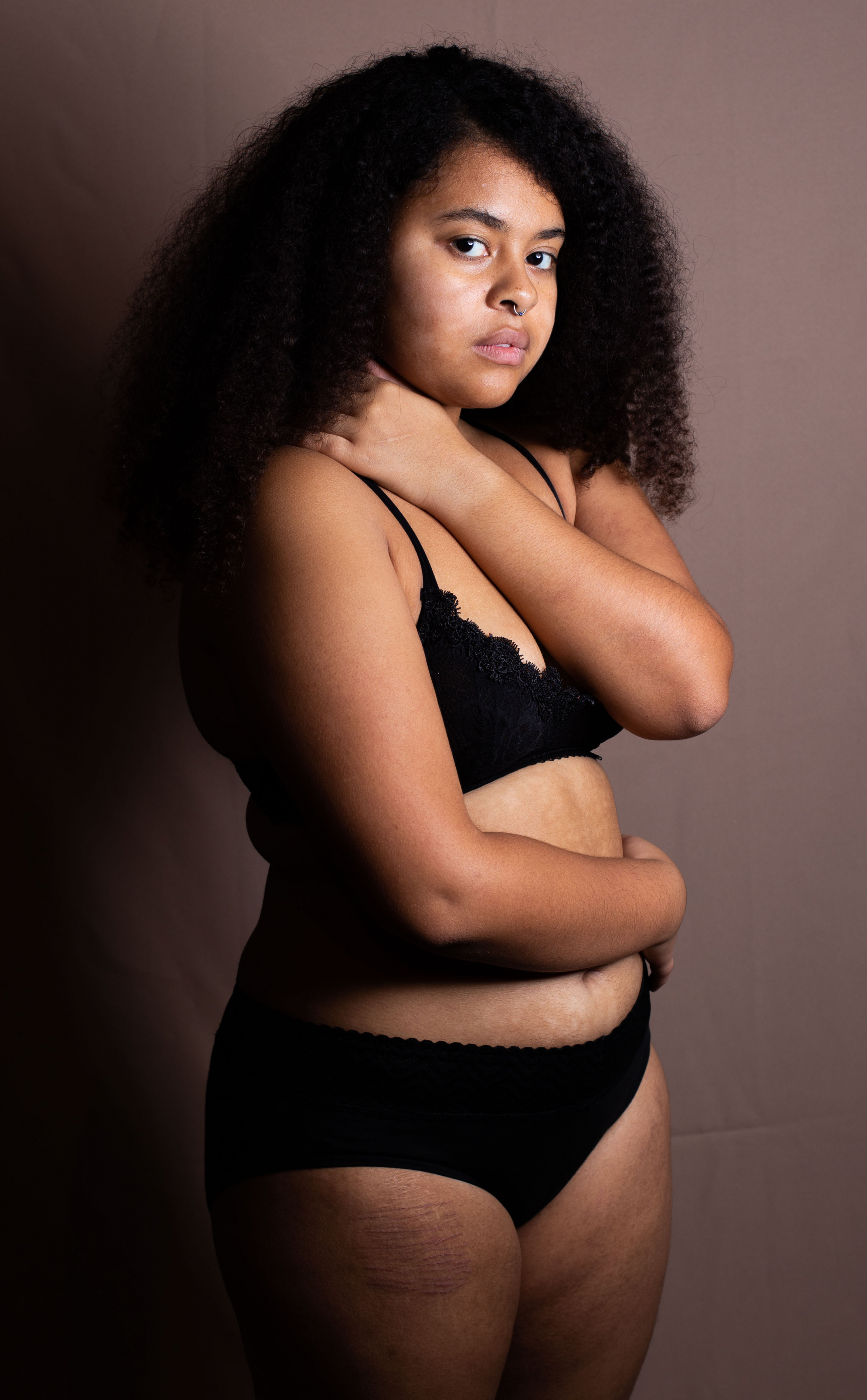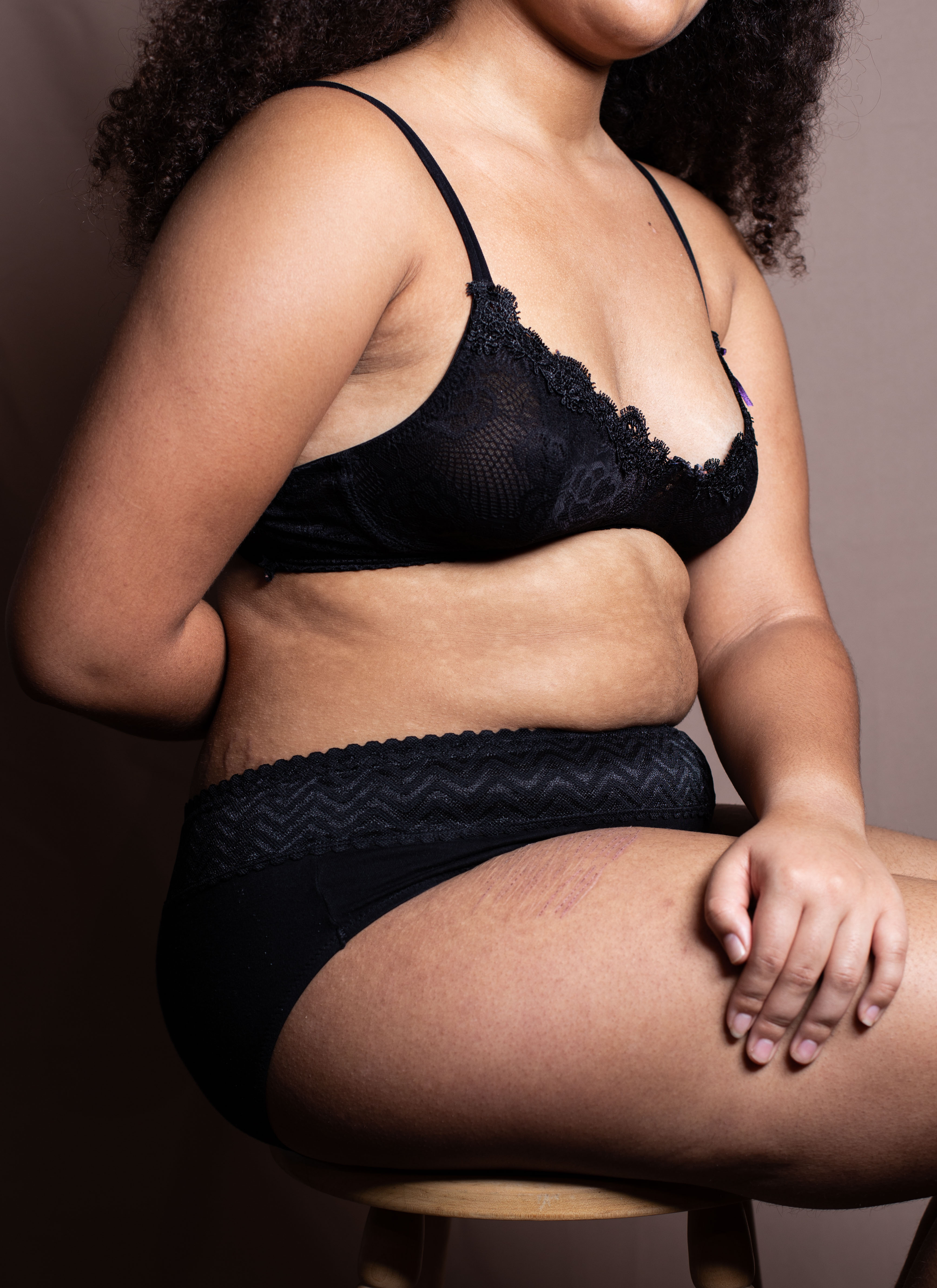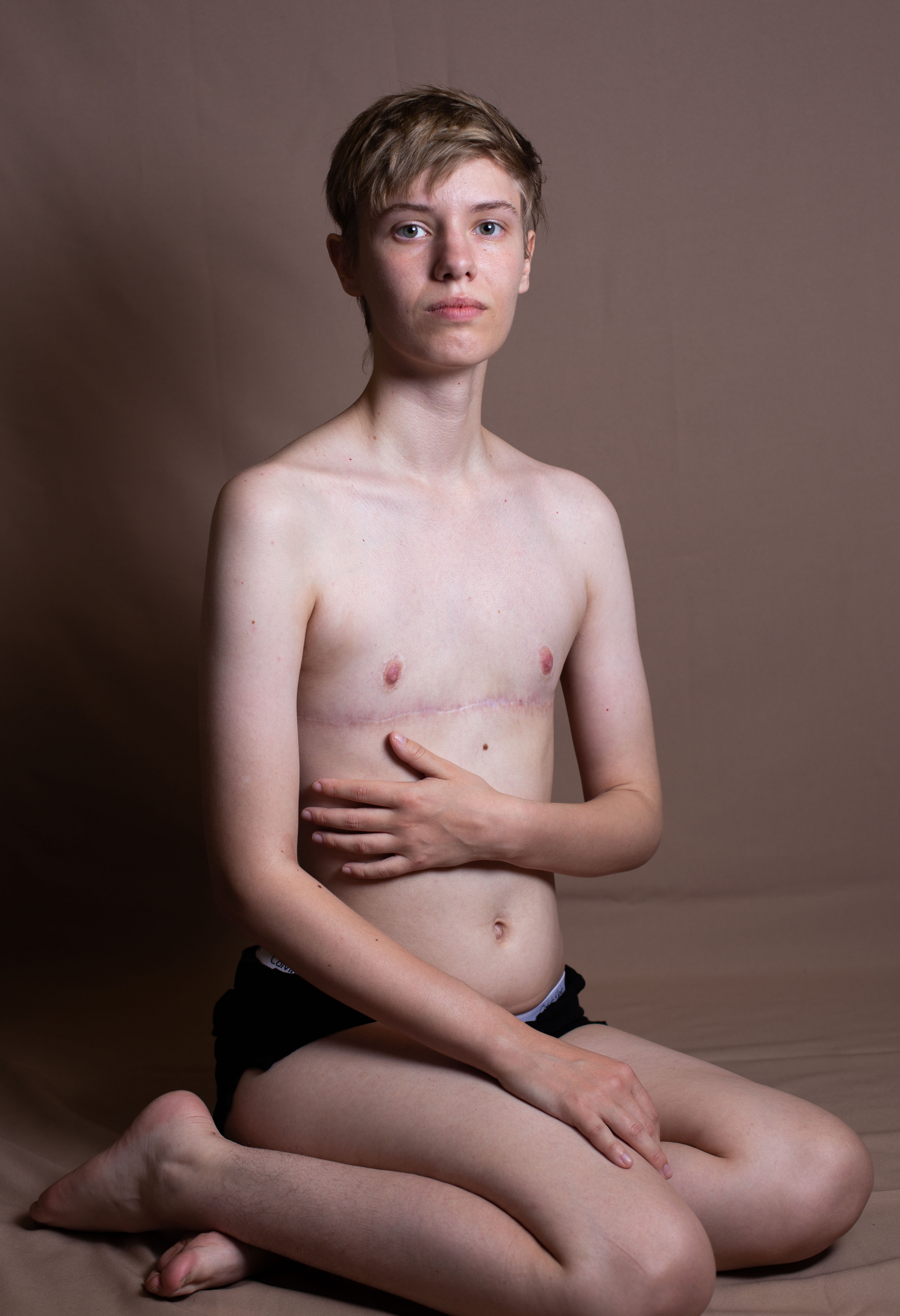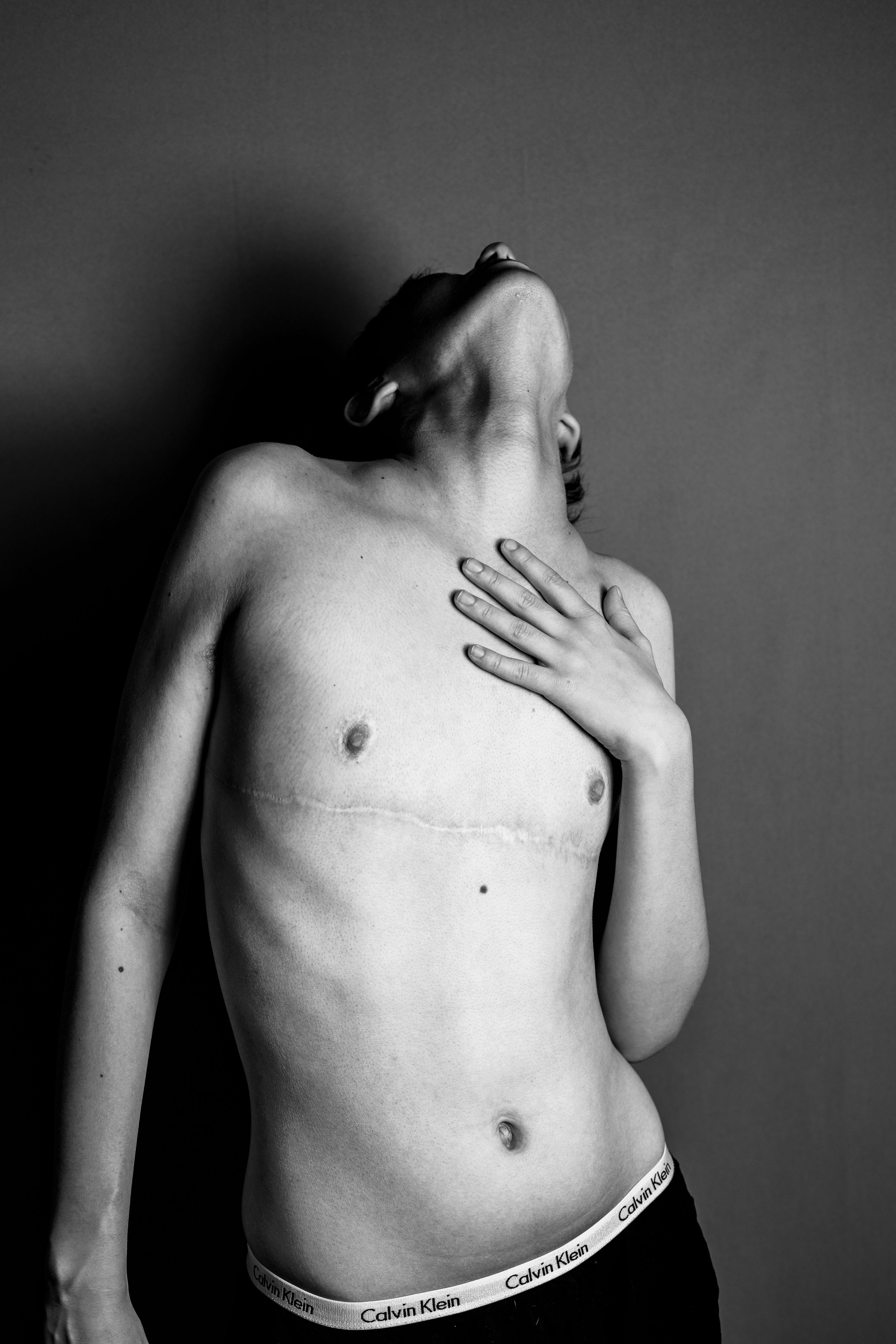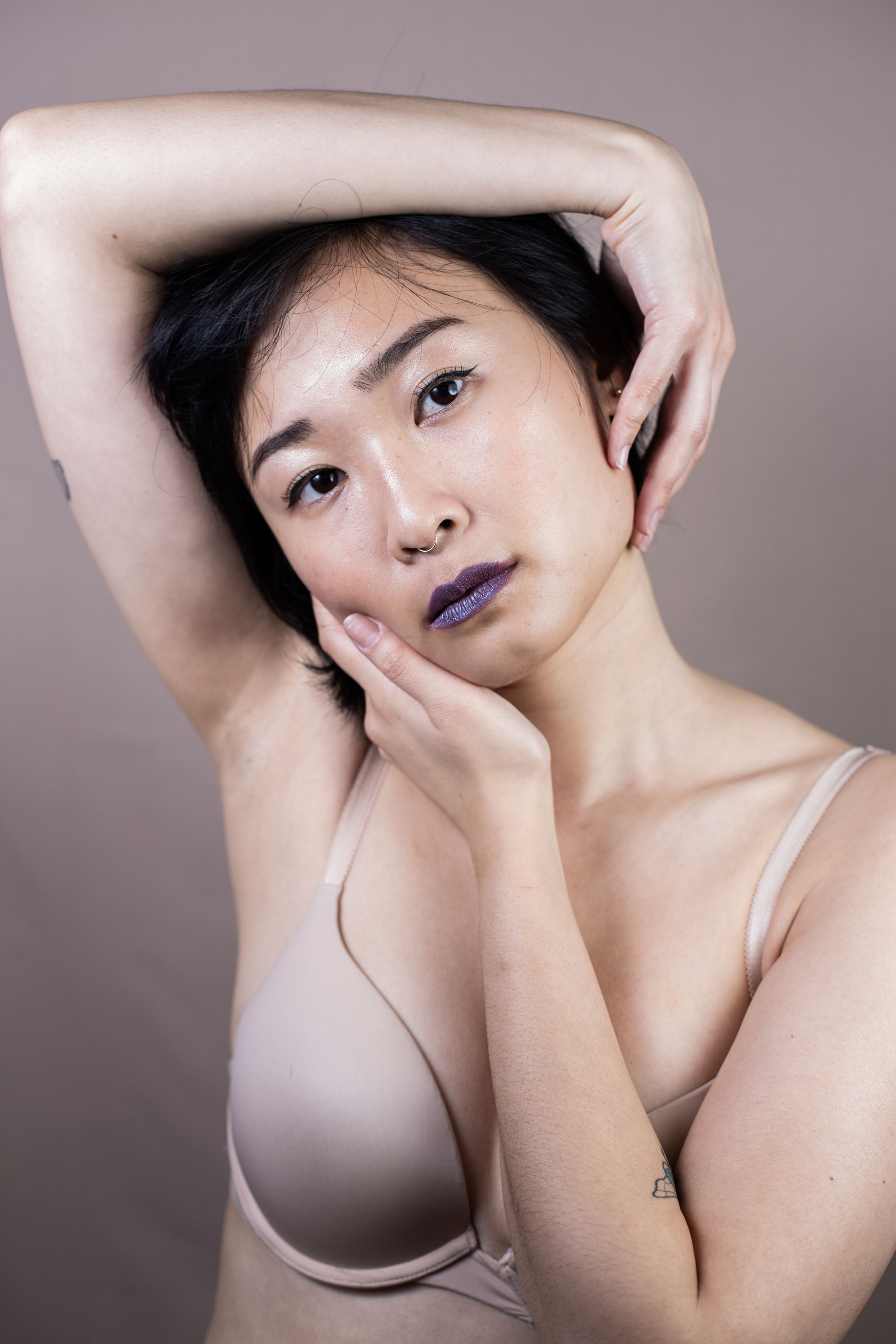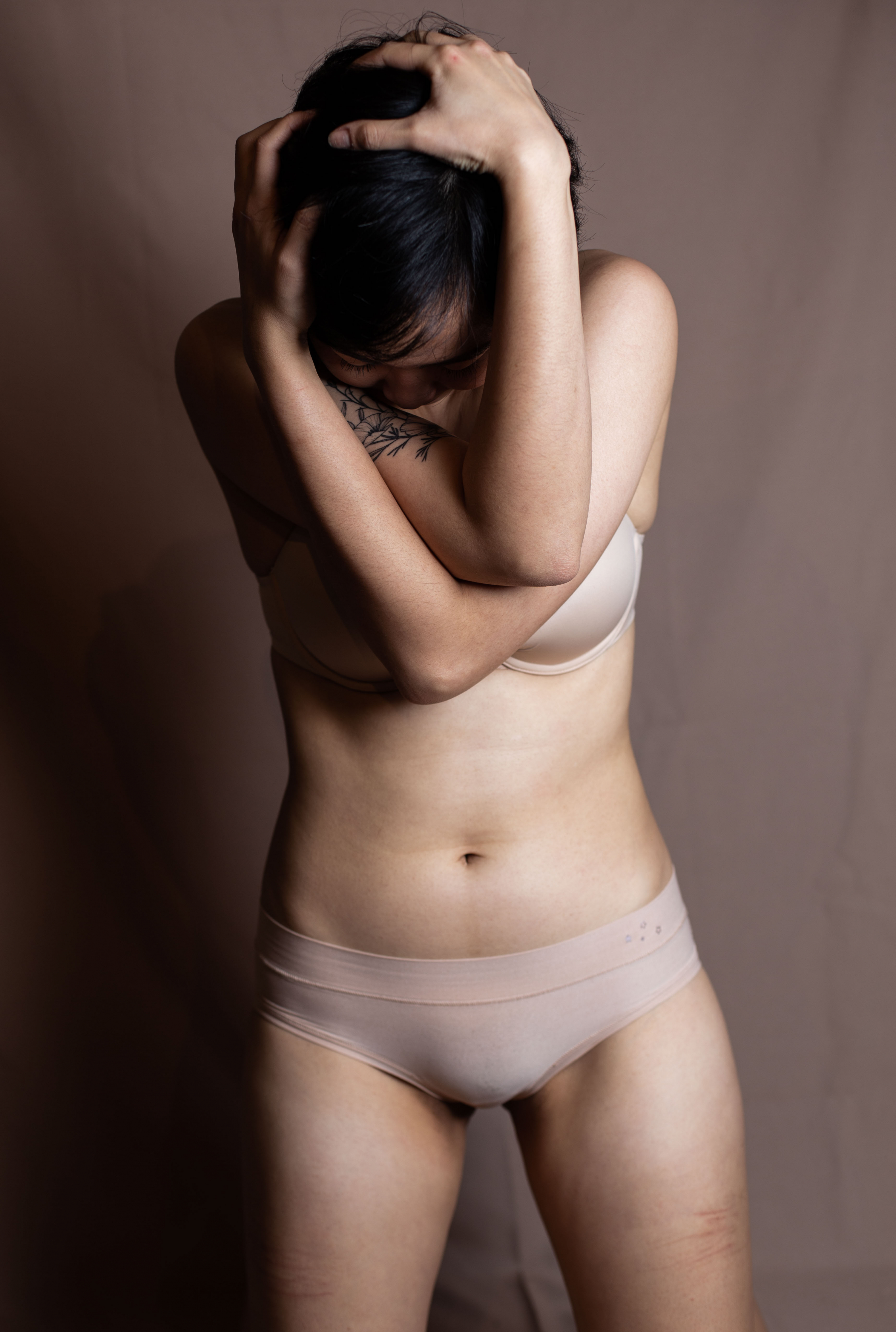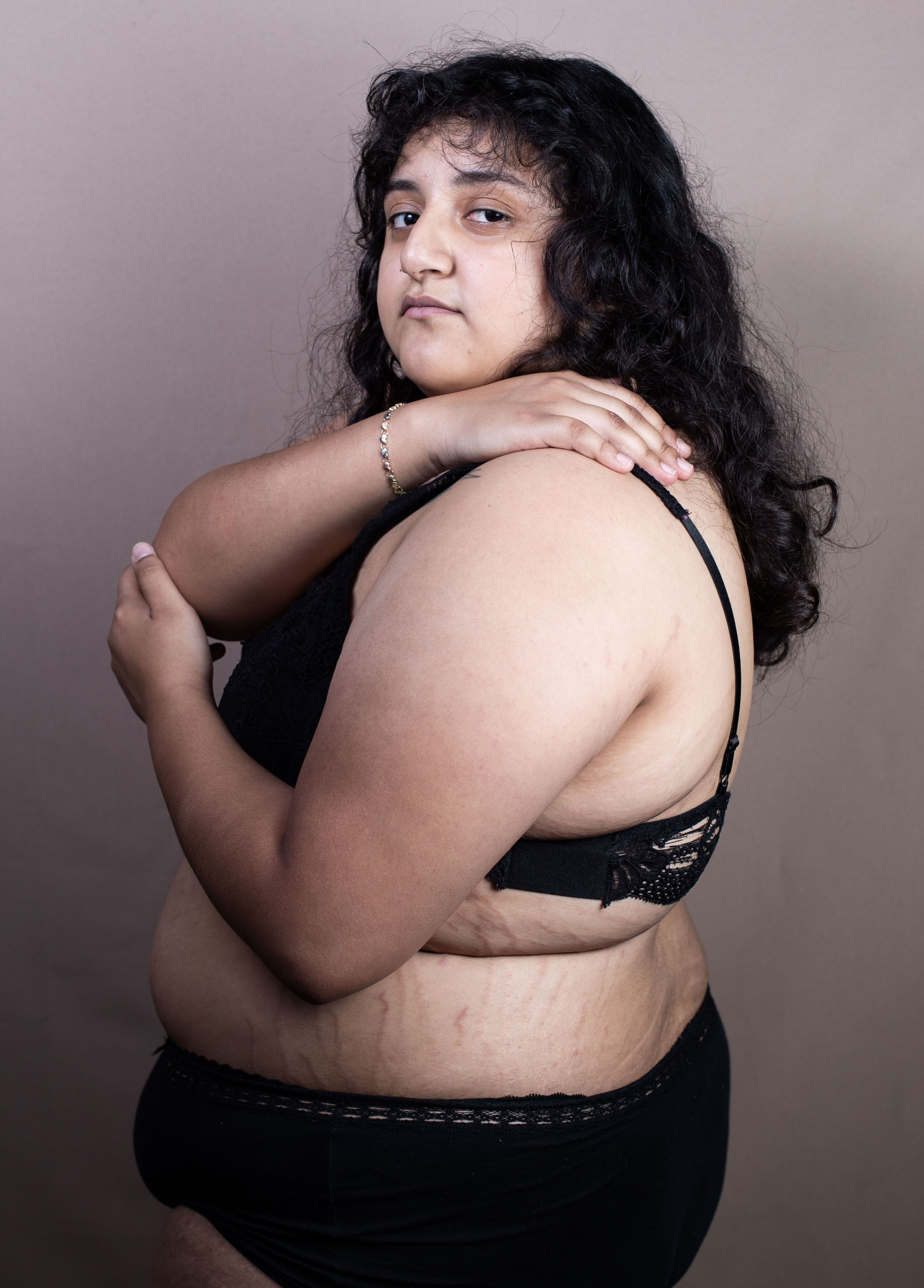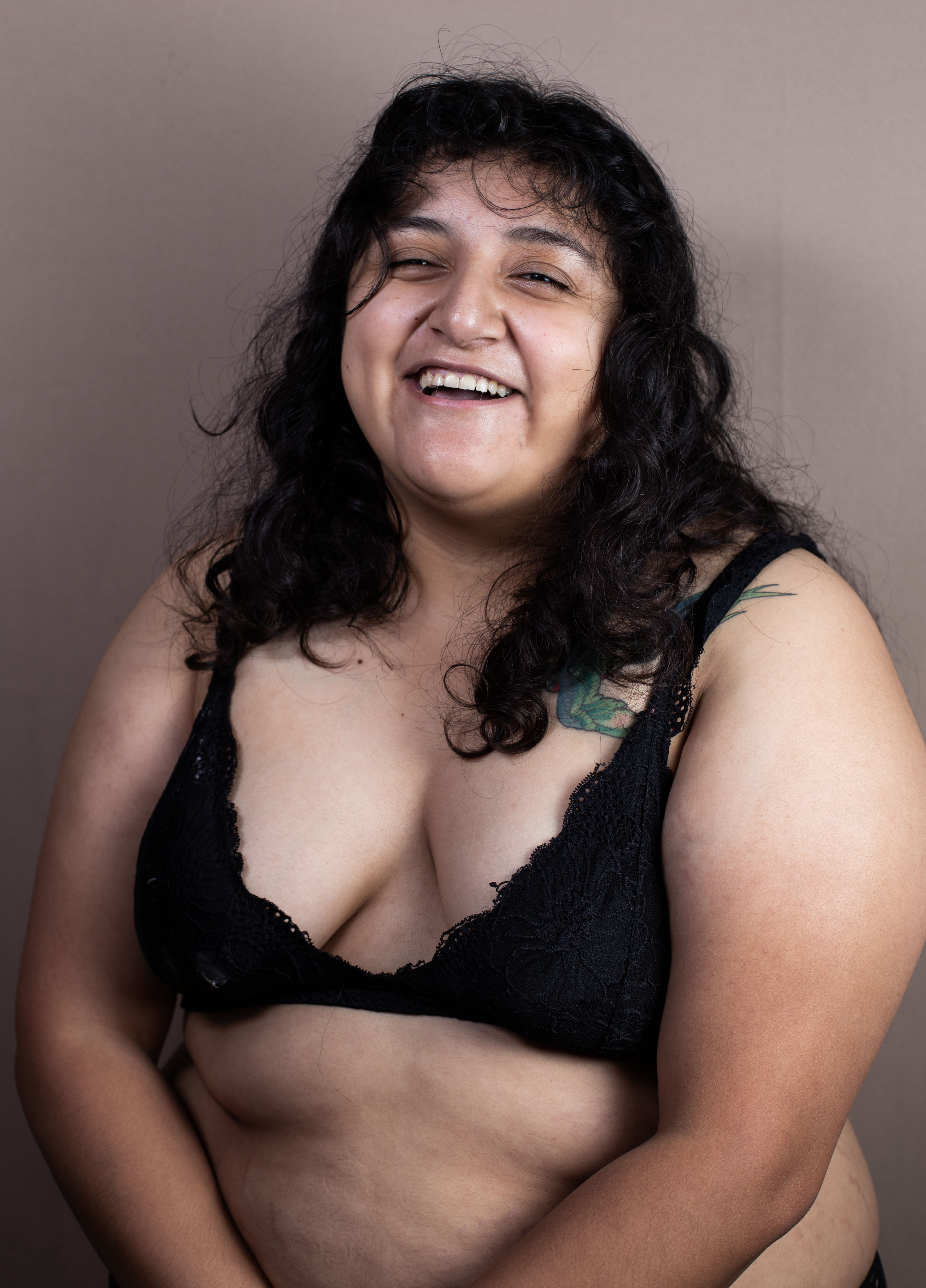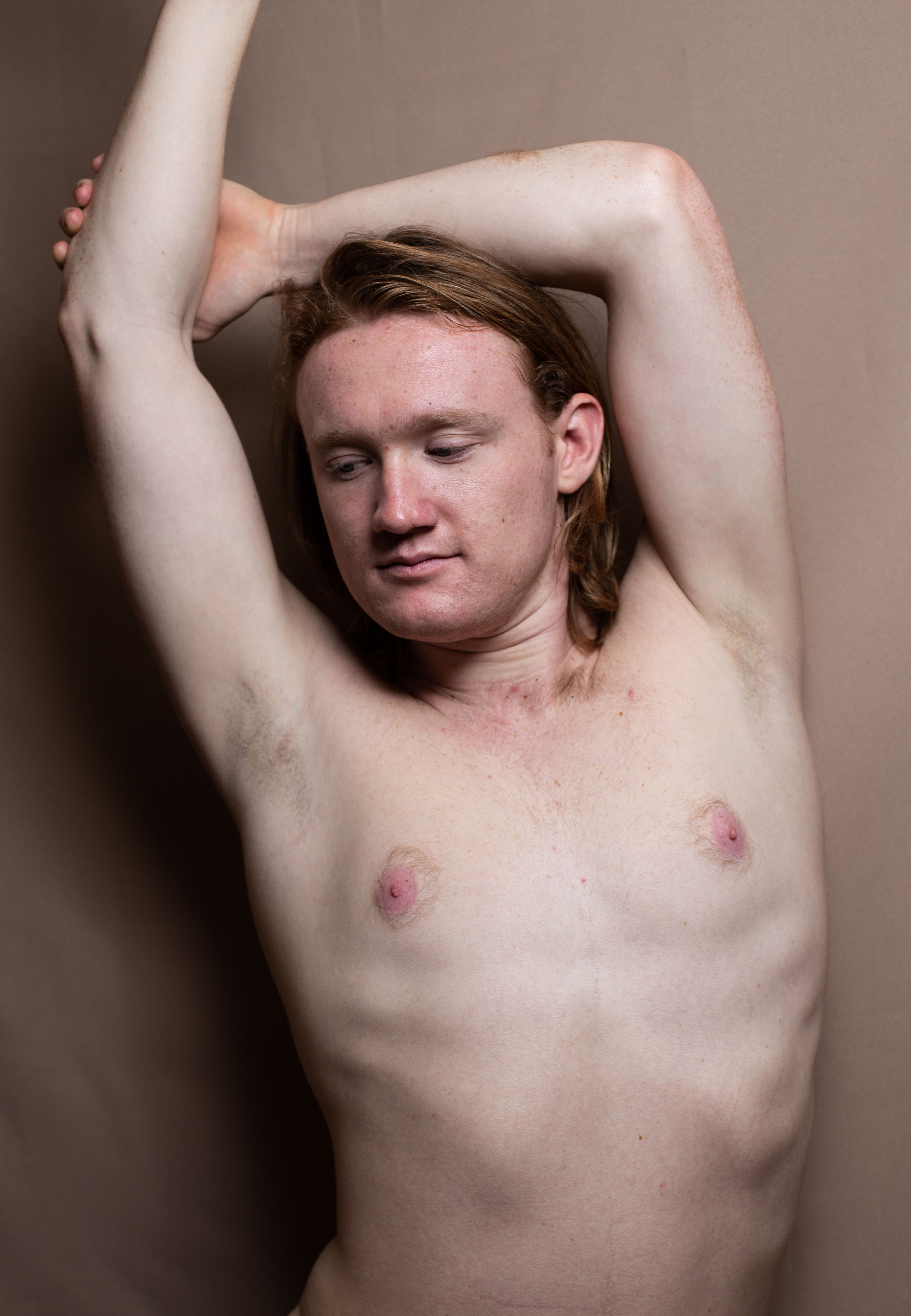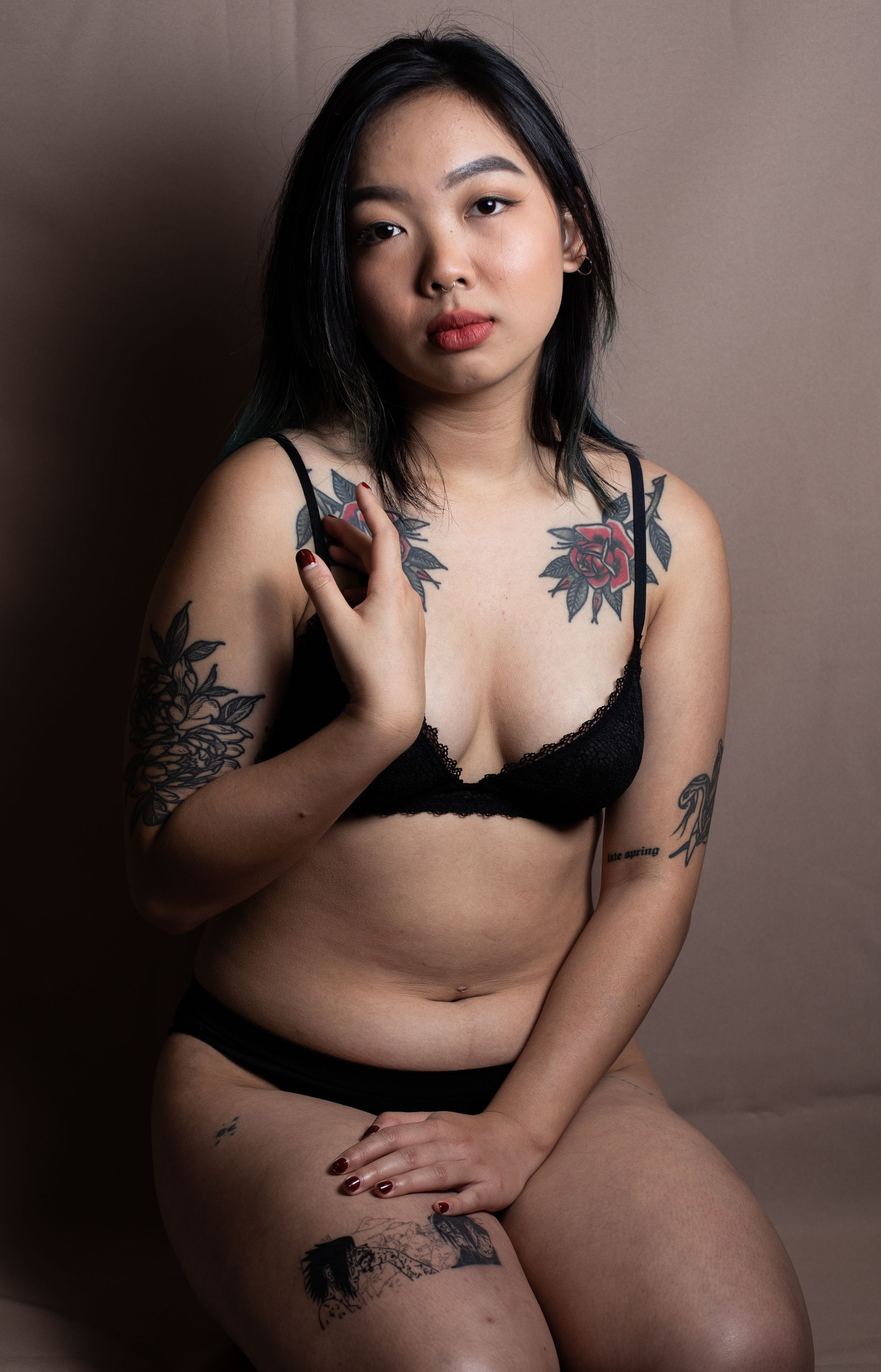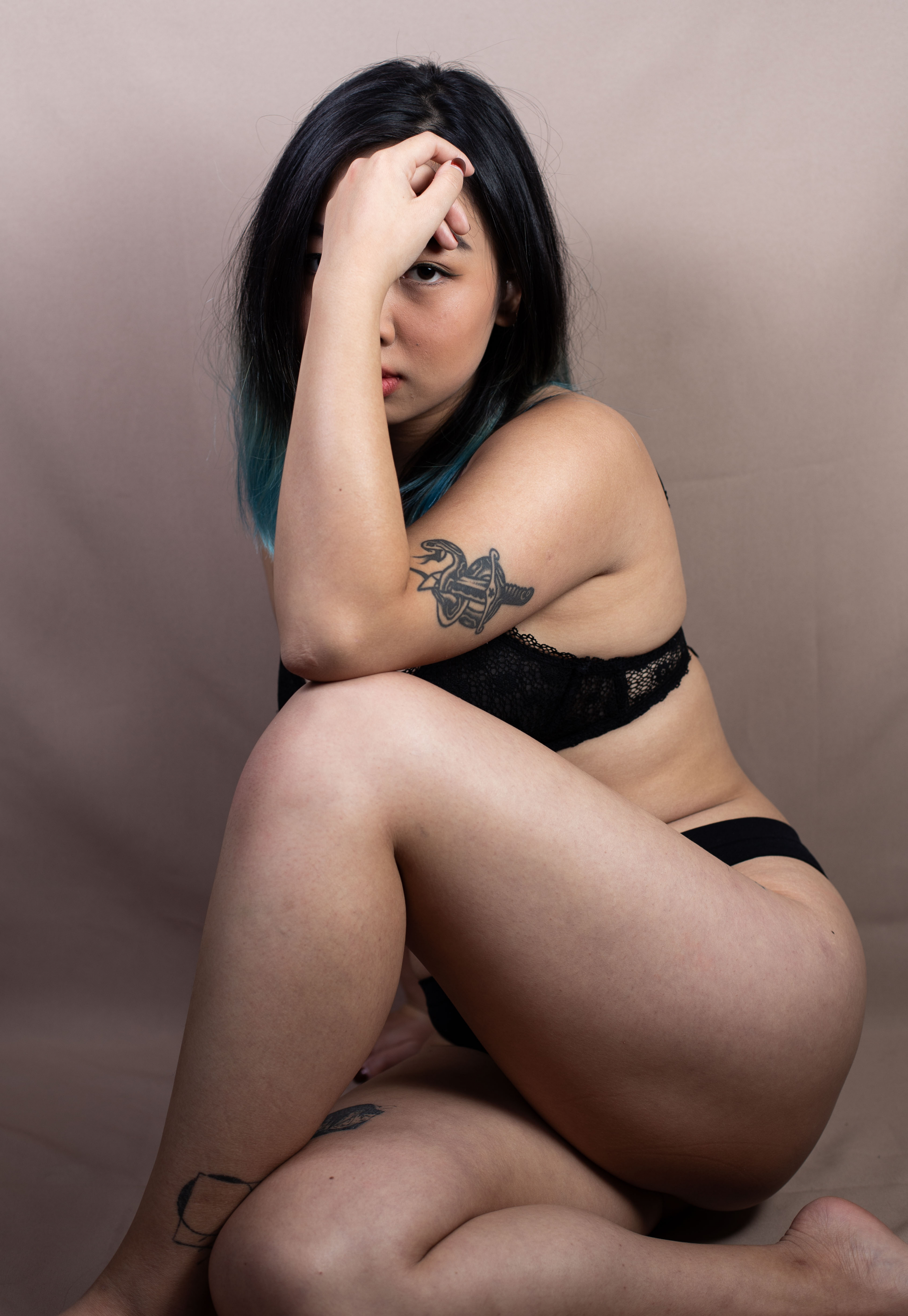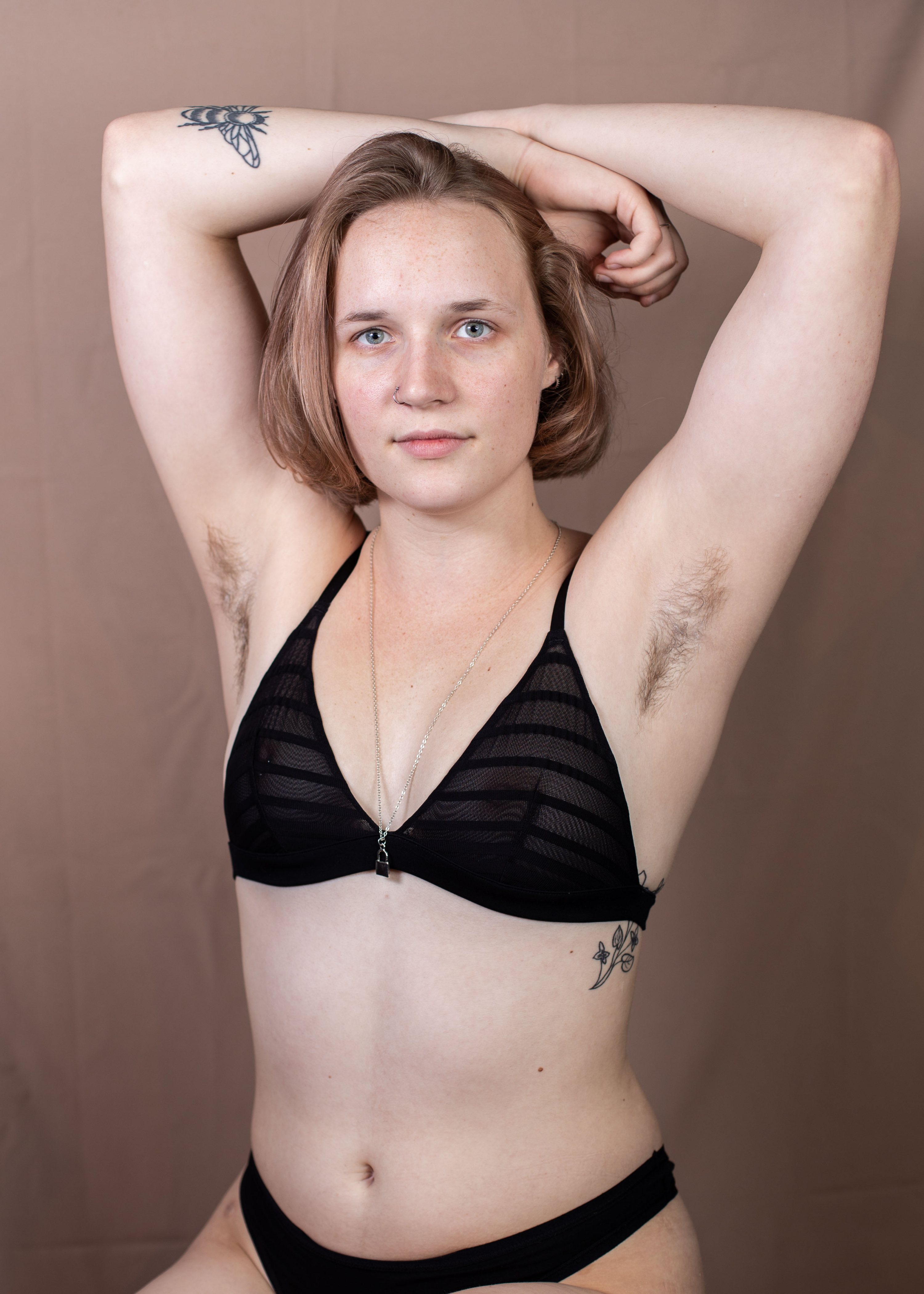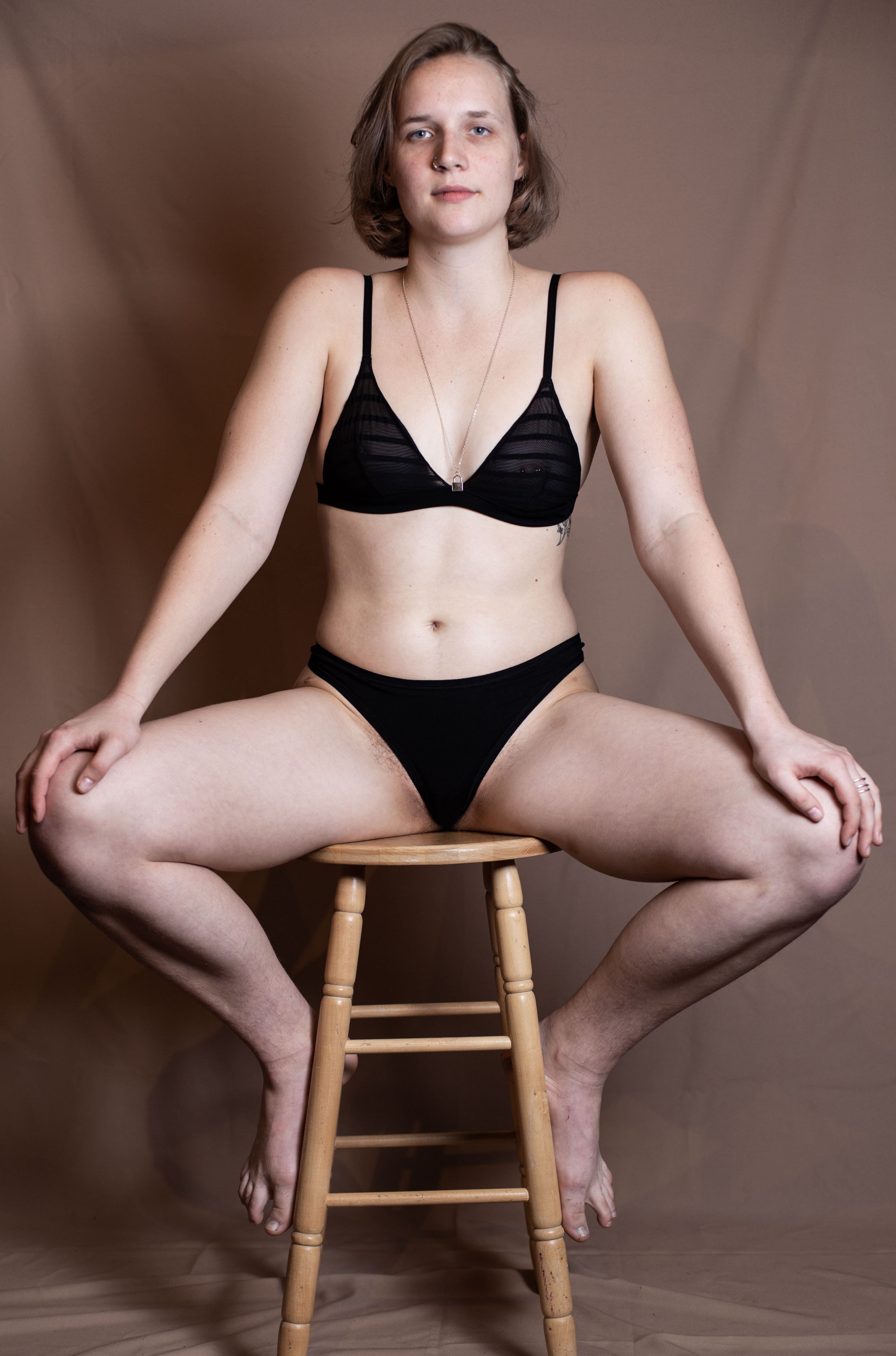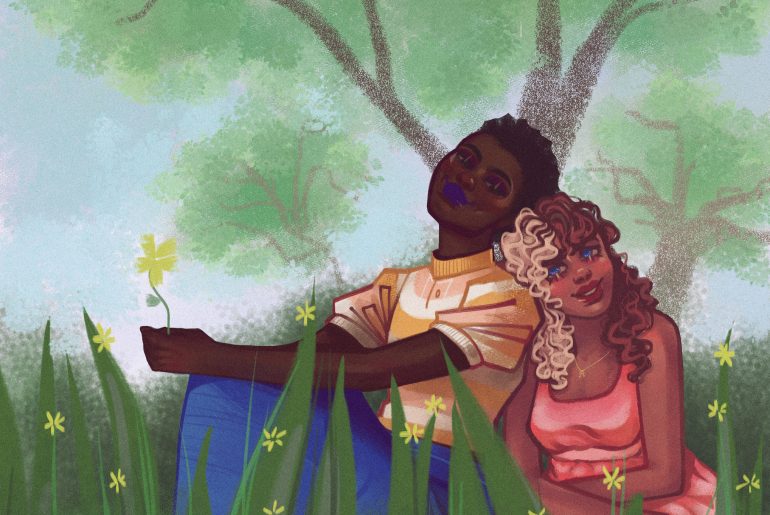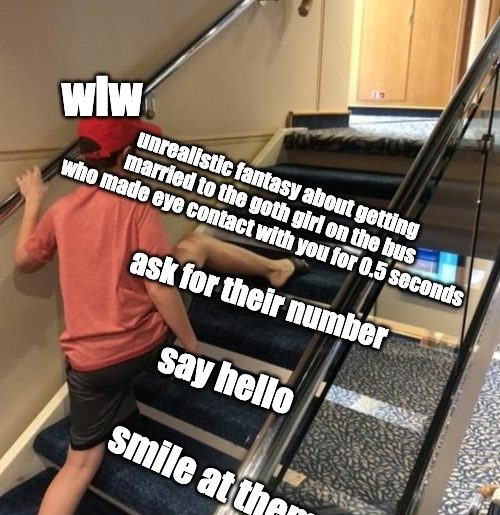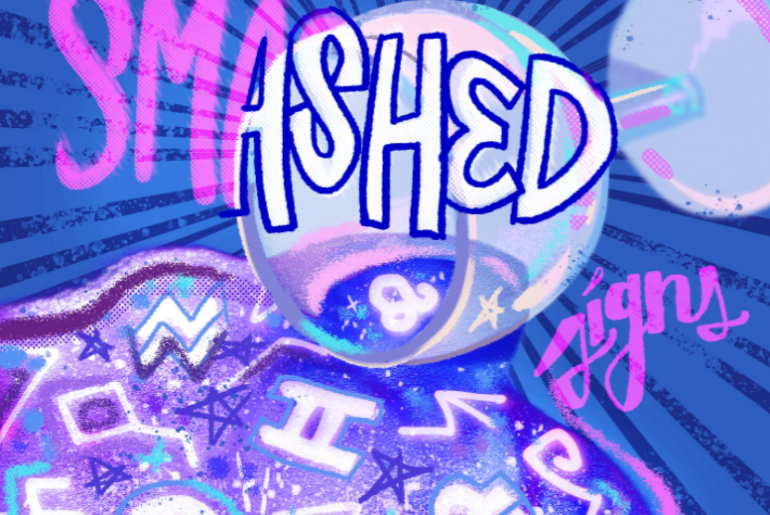Written and Directed by Tatiana Su
Photographed by Cheyenne Tex
[content warning: partial nudity, scars, self harm, dark themes]
Because homophobia and transphobia remain etched into the woodwork of society, it is no surprise that queer and trans people, especially those of color, are intimately familiar with trauma. Themes of trauma and mental illness have become running jokes within the LGBTQ community as our sexual and gender orientations often leave us vulnerable to stigma, rejection, discrimination, harassment, and more. Despite the prevalence of these issues, our bodies and stories are rarely represented in the media. This project shares the voices of queer and trans people who experience mental illness in hopes of both chipping away at the stigmas associated with our identities and providing physical representation of conditions normally deemed invisible. Our bodies, however scarred or bruised they may be, are stories of survival. They represent an open and unashamed rejection of all the ways society has tried to invalidate our existence.
The following series of photos features queer and trans community members in their undergarments alongside snippets of their stories. Participants of this project were asked to share both their bodies and their perspectives: how their queer and trans identities interact with mental illness, how these identities translate to skin, and what they hope to show the world.
Quotations have been edited minimally for readability.
Allison (any pronouns)
When I came out as non-binary, my mother asked me how I knew, how it felt. I told her when I was with the girls, I felt like a man. And when I was with the boys, I felt like a woman. I felt that changing, shifting. Like my gender was the tide pulling towards and away from me.
Nothing came of that conversation until weeks later when my therapist said my mom had told her a theory: that my gender fluidity was a product of my social anxieties and insecurities. That I was looking for answers in the wrong place. My therapist laughed it off, and I laughed too. But after we were done laughing, I was still thinking about what she’d said. Fuck, it’s been 6 years since that conversation, and I still think about what she said. I love my queerness, and I’m loud about it, but I’m not naive enough to think that it doesn’t come with a hell of a lot of pain. And not just pain but pain with a compound interest, asking for a larger percentage of my time everyday.
I have a complicated relationship with my body. I like to decorate it: piercing my ears, cutting, bleaching, dying my hair, tattooing my ribs, my chest, my calf, my shoulder. And I eat when I feel my body get hungry. I don’t curb cravings. I don’t diet. I don’t deny myself the things that taste good to my tongue. And I love the parts of my body that are thought to be ugly: the red acne on my cheeks and the fat under my chin that softens my jaw. But when I was diagnosed with depression, the first thing I was told was that there are two versions of me: my body (its chemical imbalances, its misfirings and misguidings) and the actual me (the one who would be otherwise be content). Distrust was planted in my relationship with my body and it only bloomed after I was further diagnosed with OCD and ADD. I wanted to portray this love and this distrust in my pictures. I wanted that to simmer exposed on the planes of my skin.
Aurin (they/he)
For me, it’s less about being queer and more about being a visibly gay, visibly trans person of color in a society that is actively violent towards people like me. This is what affects my mental health. Literally every single queer person I know struggles or has struggled with mental illness, and I don’t think that’s a coincidence. I know that being QTPOC has made it harder for me to find resources, has made me more anxious about being in public or in other vulnerable situations, and has honestly just made me tired and depressed from living in a world that’s inhospitable to me in many ways. But I’m also in a place where I can say that I’m really lucky to be queer. I don’t think I’d have been able to realize certain things about the world or about my past if I wasn’t, and I certainly don’t think I’d have been able to build the QTPOC community I have now to support me. Queerness is a lens through which I interact with the world, and I’m grateful for that perspective even though it impacts the material realities of my life, mental health included.
I’m currently working on a personal goal to not abandon myself. As someone who experiences a lot of ongoing trauma, I spent a long time ignoring my needs, breaking the promises I made to myself, and indulging escapist behaviors because that’s the kind of shit that helped me survive and cope. But I think it’s time for me to assume my own responsibility and be present in my body and in my life, and I think this project is part of that process, however uncomfortable that may be. I hope that you can see me and maybe see yourself too, and I hope you hold yourself in whatever process you might be going through. I want to show that people like me are an important part of this world, and we deserve to be a part that gets to grow old.
Kara (she/they)
I deal with several different mental illnesses, some of which are closely related to my background. I came from an incredibly conservative Christian environment that was very focused on sex, but in a certain way. There was this focus on how you are intended to marry a man who will be your head, and you’ll be the body. In that situation, you’re supposed to want to have sex. I identify as asexual and also gay, so it’s like the exact opposite of that. As a kid, I was always really confused. I thought, “Is this what people want? Maybe people are marrying men because they want a fancy dress!” I suffer from PTSD, partially because of that background, as well as anxiety. I always knew that Christian woman stuff wasn’t me, but I felt like that was something wrong— that I was broken and just not good enough. Rather than being able to find any sort of identity, I sort of dropped all the parts of myself. Understanding my identity as a queer person and understanding my mental illnesses have both been a journey over the last few years. I feel like what this project brings is visibility to the invisible trauma and pain that comes with mental illness.
Amanda (they/them)
My mental illness and queerness both make me who I am. However, it was not always easy for me to accept those two components of myself. Growing up, I attended a conservative, Catholic elementary school. Homosexuality was not widely accepted and mental illness was viewed as weakness, so by the time I reached high school I was convinced every one would hate me if they found out about either part of me. When psychiatrists would ask me if I had any thoughts of hurting myself or had any interest of people of the same sex, I would say no despite the fact that things had gotten so bad that my poor management of my mental illness had ruined several of my closest friendships and relationships. I continued to say no until my junior year, when several people at my tiny all girls school came out of the closet. It turns out, high school was more accepting than I thought, and in my junior year I came out as a lesbian, and my senior year, I told everyone I was non-binary.
Learning to accept these parts of myself helped me accept other parts of myself, including my mental illness. This lengthy learning process helped me acknowledge the fact that my queerness and mental illness are both intrinsic parts of myself. Without them I would not be myself, and my experiences with mental illness and my own queerness have given me an extremely unique perspective on life that I am extremely grateful for. I hope to show that sometimes being okay can be a gray area and that although my reality is different from that of other people’s, that’s okay and it doesn’t mean I’m not capable.
Aviel (they/he)
Sometimes queerness can exacerbate mental illness because queerness can be very stressful – like coming out to your family. For me as a trans person, the medical side of transitioning is very anxiety-inducing. But I also think queerness can be very helpful because I have a community around me that I can rely on, and I also feel like people in the LGBT community are a lot more open about our problems with mental illness.
I’m skinny, exaggeratedly so, and I think people in society view thinness as a mark of health. I think that’s unhealthy both for people who aren’t skinny and for those who are. People who aren’t thin are not necessarily unhealthy, and being skinny isn’t necessarily a mark of health. My anxiety issues cause me a lot of problems with my stomach, and it really screws with my appetite. I also have ADHD, which makes me forget to eat, so I want to show that although I’m skinny, it’s unhealthy – just to make sure that narrative is out there.
I have top surgery scars, and I’m very proud of them. I got top surgery in January, and I’d never be able to do a shoot like this before I got top surgery. Scars are seen as unhealthy, but for me it’s been incredibly healthy and freeing. I want people to be able to see transition scars as something beautiful.
Tatiana (she/they)
Having depression, anxiety disorders, and an eating disorder comes with a sense of betrayal – as if my own body doesn’t want me to live. On a good day, my mind and body are merely untrustworthy. On a bad day, they’re villainous. Anxiety will cause digestive issues that exacerbate my eating disorder, which makes my anxiety even worse and also sends me into a depressive spiral. It’s a huge web of feedback loops that makes existence incredibly exhausting. My relationship with this body is often bitter and fearful because I feel trapped inside what seems like a dysfunctional flesh prison, but I wish people knew that vulnerability doesn’t equate with helplessness. I have agency. I am continuously learning to meet myself with kindness and curiosity.
Where mental illness sows distrust within my mind and body, queerness offers softness and belonging. Since coming out and finding queer community, I’ve been able to love myself more deeply and authentically. That’s not to say that issues of sexuality haven’t caused me pain. Because I was raised Christian and remained entrenched in the church until the latter half of college, I’ve heard countless times that queerness and pursuing “ungodly” things would ultimately ruin my life. As a result, I felt such pressure to succeed and prove people wrong. I can’t fuck up. I don’t have that privilege. If I end up in a bad place, the Christian community will probably nod wisely and say, “that’s what happens when you stray away from God.” The problem is that mental illness makes it really hard for me to function, and it’s affected school, work, and everything in between. I’m afraid that people will think that my queer “lifestyle” is the cause of my mental illness, but in reality, much of my depression is caused by religious trauma. Embracing my queer identity has felt, more than anything, like coming home to myself – like finally allowing the deepest parts of myself to breathe. For that, I am grateful.
Jen (she/they)
I want to represent the big girls and show vulnerability. I’m doing this because I think it’s very healing for me, and it might be healing for others because a lot of healing is best done in groups and communities. I feel like if a queer person with mental illness sees my struggle, hopefully they will feel better about working on themselves. There was something about focusing on bodies that really struck a chord with me, and I’ve been thinking about that a lot lately – the relationship between my body and my mind. I have been going to therapy, and that’s medicine for the brain, but my body still holds a lot of trauma that has gone ignored. That’s something people should keep in mind – to take care of their bodies, to nourish and love them. I am a survivor of sexual assault, and I feel like talking it out is one thing, but having my body go through the motions of healing is different. As much as I talk about my assault, if someone gets too close to me, even though I know it’s not intended to hurt me, my body still doesn’t understand.
Cole (they/them)
Growing up poor in Davis, a city with mostly upper-middle class people, I had a lot of self esteem issues. I was made fun of for my ill-fitting hand-me-downs, and I felt like I never fit in with anyone. I’ve had a really hard time with depression my whole life, which manifested in disordered eating and self-harm. Being poor though, there were days where there was almost nothing for us to eat, and that just made me feel worse about how everyone else saw me. I felt ungrateful for starving myself when at times we only had one meal a day.
On the other hand, I felt super uncomfortable in my skin because I was frequently questioned or made fun of for how I presented or what I wore to align with my gender performance. Social factors, depression, and body image issues all worked together to suppress my non-binary identity and make me even more unhappy. I wanted to do this project to represent the power there is in being non-binary. I wanted to show that even though I’m still rebuilding my relationship with my body and dealing with my mental issues, I am still able to be here.
Angela (she/they)
Personally speaking, being “queer” doesn’t just mean you have a non-normative sexuality or gender, but it means having a completely different view and experience of the world based on your identity. Every day you’re confronted with the fact that the world isn’t made for you; it isn’t made for the people who struggle the most. In fact, the world was specifically designed to make marginalized people suffer. Your interactions with people change completely, often in a negative way because they will never be able to understand how you perceive the world. Questioning if the people around you, especially family members, only love you conditionally because of your gender/sexuality is a constant mindfuck that cishet people never have to worry about. Accepting the fact that you live in an alternate reality not made for you is exhausting and draining. However, I have found so much healing and self-love through accepting my sexuality. Every time I struggle because of these injustices, I’m reminded of how much I’ve grown positively because of the support that my community has given me.
To be honest, I was very uncomfortable taking these photos because I’m still recovering from depression, anxiety, an eating disorder, sexual trauma, etc. I wanted to convey how recovering and healing can be extremely difficult despite what we often hear. It’s not a linear process. Often times we cannot ever truly forget about the trauma that happens to us; we can only find better ways to cope and love ourselves and make ourselves feel authentic and at home. I personally did that through tattooing, because it gave me the agency I needed to reclaim my body in a world that tells you that you are consumable and can be owned by others.
Julia (any pronouns)
Since queerness and mental illness are both marginalized identities, there are some similarities in how they function in my life. The reaction to “I have a girlfriend” isn’t quite the same as the reaction to “I have obsessive compulsive disorder,” but they are both sometimes met with astonishment or doubt, depending on who I am talking to. Being queer helped me accept my mental illness, and being mentally ill helped me accept being queer.
I chose the pose with my armpit hair showing because I think body hair is something that is not readily accepted or beautified in “regular” photographs. Additionally, defying gender norms is intrinsically queer and something that I thoroughly enjoy and believe should be celebrated. Body hair, regardless of whose or where it is, deserves a place in the spotlight. Piercings and body hair are both often queer signals, something to be appreciated by me and for myself but also a quiet signal to others that I can be a safe space should they need one.

